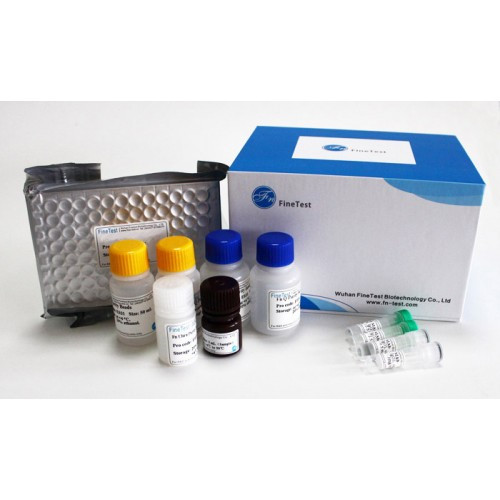Product Description
Recombinant Human Interferon-induced protein with tetratricopeptide repeats 3 (IFIT3) is available at Gentaur for Next week Delivery.
Gene Name: IFIT3
Alternative Names : CIG49ISG-60Interferon-induced 60KDA protein;IFI-60KInterferon-induced protein with tetratricopeptide repeats 4;IFIT-4Retinoic acid-induced gene G protein;P60;RIG-G
Expression Region : 1-490aa
AA Sequence : MSEVTKNSLEKILPQLKCHFTWNLFKEDSVSRDLEDRVCNQIEFLNTEFKATMYNLLAYIKHLDGNNEAALECLRQAEELIQQEHADQAEIRSLVTWGNYAWVYYHLGRLSDAQIYVDKVKQTCKKFSNPYSIEYSELDCEEGWTQLKCGRNERAKVCFEKALEEKPNNPEFSSGLAIAMYHLDNHPEKQFSTDVLKQAIELSPDNQYVKVLLGLKLQKMNKEAEGEQFVEEALEKSPCQTDVLRSAAKFYRRKGDLDKAIELFQRVLESTPNNGYLYHQIGCCYKAKVRQMQNTGESEASGNKEMIEALKQYAMDYSNKALEKGLNPLNAYSDLAEFLETECYQTPFNKEVPDAEKQQSHQRYCNLQKYNGKSEDTAVQHGLEGLSISKKSTDKEEIKDQPQNVSENLLPQNAPNYWYLQGLIHKQNGDLLQAAKCYEKELGRLLRDAPSGIGSIFLSASELEDGSEEMGQGAVSSSPRELLSNSEQLN
Sequence Info : Full Length
Tag Info : N-terminal 6xHis-SUMO-tagged
Theoretical MW : 72 kDa
Storage Buffer : Tris/PBS-based buffer, 5%-50% glycerol. If the delivery form is lyophilized powder, the buffer before lyophilization is Tris/PBS-based buffer, 6% Trehalose, pH 8.0.
Endotoxin Level : Not tested-
Biological Activity : Not tested
Storage : Short term: -20°C; Long term: -80°C. Minimize freeze and thaw cycles.
Research Area : Immunology
Restriction : For Research Use Only. Not for use in diagnostic procedures, drug use, or for administration to humans or animals.
Relevance : IFN-induced antiviral protein which acts as an inhibitor of cellular as well as viral processes, cell migration, proliferation, signaling, and viral replication. Enhances MAVS-mediated host antiviral responses by serving as an adapter bridging TBK1 to MAVS which leads to the activation of TBK1 and phosphorylation of IRF3 and phosphorylated IRF3 translocates into nucleus to promote antiviral gene transcription. Exihibits an antiproliferative activity via the up-regulation of cell cycle negative regulators CDKN1A/p21 and CDKN1B/p27. Normally, CDKN1B/p27 turnover is regulated by COPS5, which binds CDKN1B/p27 in the nucleus and exports it to the cytoplasm for ubiquitin-dependent degradation. IFIT3 sequesters COPS5 in the cytoplasm, thereby increasing nuclear CDKN1B/p27 protein levels. Upregulates CDKN1A/p21 by downregulating MYC, a repressor of CDKN1A/p21. Can negatively regulate the apoptotic effects of IFIT2.
Function : IFN-induced antiviral protein which acts as an inhibitor of cellular as well as viral processes, cell migration, proliferation, signaling, and viral replication. Enhances MAVS-mediated host antiviral responses by serving as an adapter bridging TBK1 to MAVS which leads to the activation of TBK1 and phosphorylation of IRF3 and phosphorylated IRF3 translocates into nucleus to promote antiviral gene transcription. Exihibits an antiproliferative activity via the up-regulation of cell cycle negative regulators CDKN1A/p21 and CDKN1B/p27. Normally, CDKN1B/p27 turnover is regulated by COPS5, which binds CDKN1B/p27 in the nucleus and exports it to the cytoplasm for ubiquitin-dependent degradation. IFIT3 sequesters COPS5 in the cytoplasm, thereby increasing nuclear CDKN1B/p27 protein levels. Upregulates CDKN1A/p21 by downregulating MYC, a repressor of CDKN1A/p21. Can negatively regulate the apoptotic effects of IFIT2.
Involvement in disease :
Subcellular location : Cytoplasm, Mitochondrion
Protein Families : IFIT family
Tissue Specificity : Expression significantly higher in peripheral blood mononuclear cells (PBMCs) and monocytes from systemic lupus erythematosus (SLE) patients than in those from healthy individuals (at protein level). Spleen, lung, leukocytes, lymph nodes, placenta, bone marrow and fetal liver.
Paythway :
Uniprot ID : O14879
 Euro
Euro
 British Pound
British Pound
 US Dollar
US Dollar








